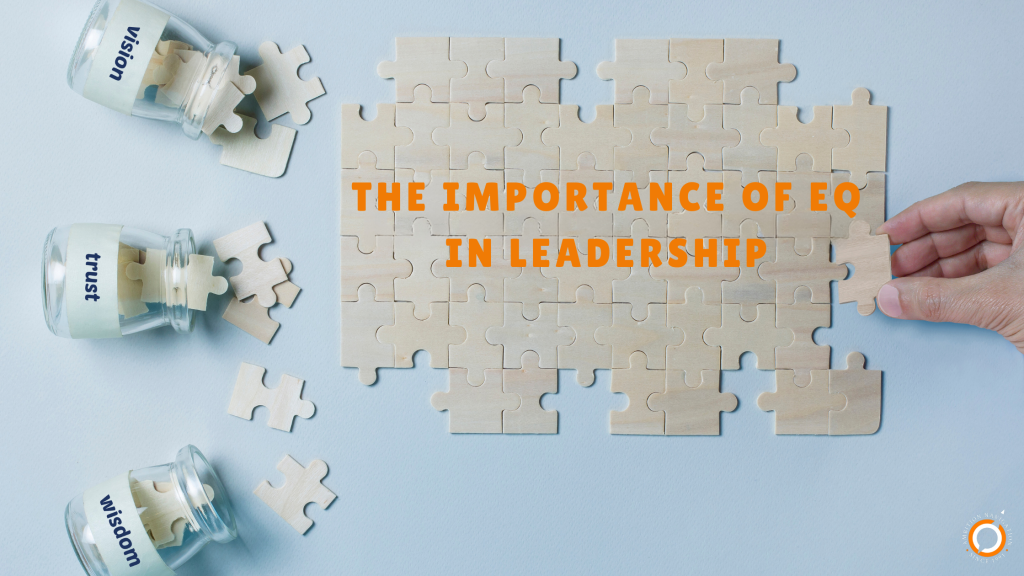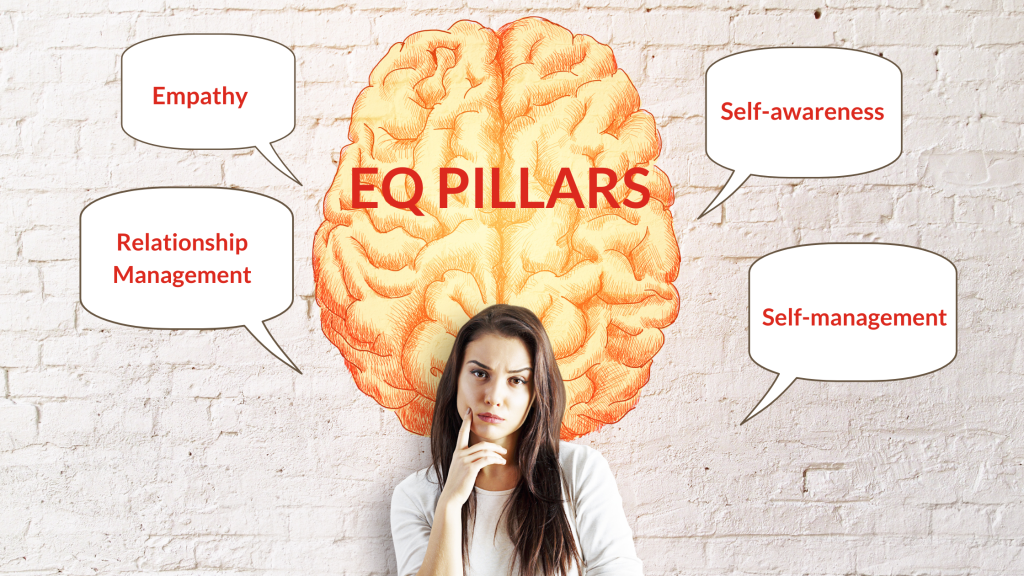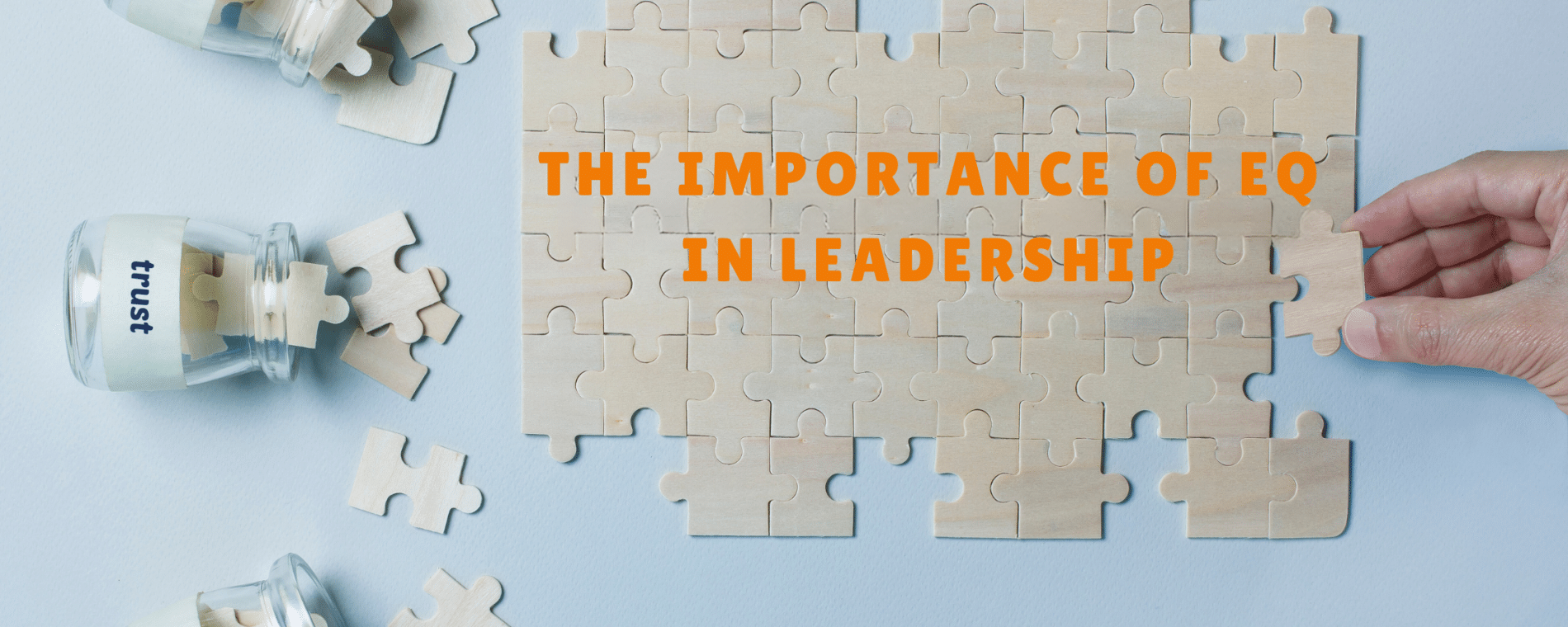
Let’s be real – leadership nowadays isn’t just about hitting targets and managing tasks. It’s about understanding people, building trust, and keeping your team motivated. And, to do that effectively, you need more than just technical skills or strong business sensitivity – you need emotional intelligence (EQ). In fact, EQ might be the single most underrated skill that separates good leaders from truly great ones.
So, what exactly is EQ? It’s your ability to recognise, understand, and manage your own emotions while also tuning into the emotions of those around you. And trust me, mastering this makes a world of difference when it comes to leading a team.
Why Emotional Intelligence Matters?
Leadership is about understanding and valuing your team, colleagues, and clients. The best leaders use emotional intelligence to listen, understand, and build trust, leading to more engaged and productive teams and better results for the organisation.
The Four Pillars of Emotional Intelligence

There are four main components of emotional intelligence that every leader can develop:
1. Self-Awareness
Self-awareness means understanding your emotional triggers and their impact on your behaviour. For example, if you tend to get defensive during feedback, you can work on controlling that reaction. Self-aware leaders recognise when emotions influence their decisions and adjust accordingly.
2. Self-Management
This is where the rubber meets the road. Can you manage your emotions when stress is high? Self-management is about staying calm and in control, even in tough situations. It’s not about ignoring your feelings, but about choosing how to respond. Leaders who master this skill set a positive tone for the team and lead by example.
3. Empathy
Empathy is key to connecting with your team. It’s the ability to understand and share the feelings of others. Empathetic leaders don’t just hear—they really listen. They ask questions and seek to understand their team’s perspectives. This builds trust and loyalty, which are vital to any team’s success.
4. Relationship Management
Great leaders manage relationships by providing motivating feedback, resolving conflicts early, and fostering positive connections to keep everyone aligned.
How to Improve Your EQ as a Leader
The good news is that emotional intelligence isn’t something you’re either born with or without—it can be developed. Before you start working on it, why not assess where you stand? You can test your EQ to get a sense of your strengths and areas for improvement.
Here are some practical steps to boost your EQ:
– Pause Before You React: The next time you feel a strong emotional reaction, take a beat. Ask yourself why you’re feeling that way and how best to respond. This helps you avoid saying or doing something you’ll regret.
– Practice Active Listening: Try focusing on listening without planning your response. This makes people feel heard and valued, which can strengthen your relationships and help build trust.
– Ask for Feedback: Don’t be afraid to ask your team how you’re doing. This can provide insight into how you’re perceived and highlight areas where you can improve.
The Impact of EQ on Teams
Teams led by emotionally intelligent leaders consistently outperform those that aren’t. When employees feel understood and valued, they’re more engaged and motivated. They’re also more likely to stay with the company long-term, reducing turnover. EQ helps leaders navigate difficult conversations and conflicts in a way that brings people together rather than driving them apart.
Final Thoughts
In a world where leadership demands more than just hitting targets, emotional intelligence is the key to creating lasting success. It helps leaders build stronger teams, resolve conflicts, and create an environment where everyone feels they can thrive. If you want to improve as a leader, start by improving your EQ. It’s not just a “nice-to-have” skill—it’s essential for anyone who wants to lead with impact.









